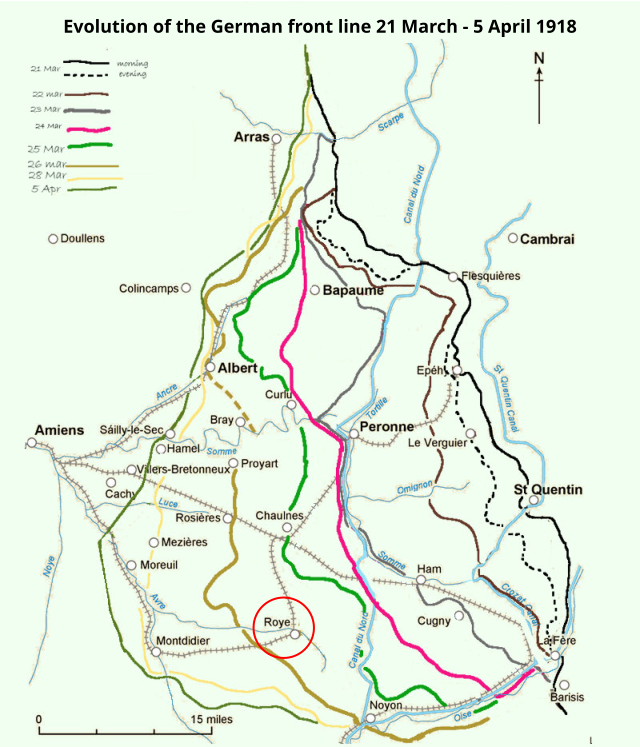Operation Michael was the major German military
offensive that began the Spring Offensive on 21 March
1918. It was launched from the Hindenburg Line, in the
vicinity of Saint-Quentin, France. Its goal was to break
through the Allied (Entente) lines and advance in a north-
westerly direction to seize the Channel Ports, which
supplied the British Expeditionary Force (BEF) and to drive
the BEF into the sea. Two days later General Erich
Ludendorff, the chief of the German General Staff,
adjusted his plan and pushed for an offensive due west,
along the whole of the British front north of the River
Somme. This was designed to first separate the French
and British Armies before continuing with the original
concept of pushing the BEF into the sea. The offensive
ended at Villers-Bretonneux, to the east of the Allied
communications centre at Amiens, where the Allies
managed to halt the German advance; the German Army
had suffered many casualties and was unable to maintain
supplies to the advancing troops.
Much of the ground fought over was the wilderness left by
the Battle of the Somme in 1916. The action was therefore
officially named The First Battles of the Somme, 1918.
The failure of the offensive marked the beginning of the
end of the First World War for Germany. The arrival in
France of large reinforcements from the United States
replaced Entente casualties but the German Army was
unable to recover from its losses before these
reinforcements took the field. Operation Michael failed to
achieve its objectives and the German advance was
reversed during the Second Battle of the Somme, (21 Aug
–
3 Sep 1918) in the Allied Hundred Days Offensive.
The unstoppable advance of the Allied armies during the Hundred Days Offensive of 1918 caused a sudden collapse of the German armies and persuaded the
German commanders that defeat was inevitable. The German government surrendered in the Armistice of 11 November 1918, and the terms of peace were
settled by the Treaty of Versailles in 1919.
Charles Harlington suffered a gun shot wound on 28 Mar 1918 at Roye. As a consequence he had his right arm amputated above his elbow (6 inches
below the shoulder). He remained in France until 25 April before he returned to England. He was discharged from the army on 20 Mar 1919.









